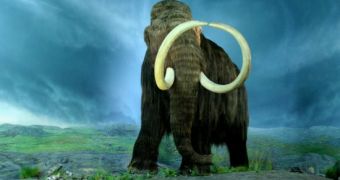A team of researchers writing in the journal Proceedings of the National Academy of Sciences detail a new theory concerning how and why mammoths went extinct.
Their theory boils down to the following assumptions: either a comet or a giant meteor caused rapid and drastic changes in our planet's climate.
Because of their being unable to adapt to these changes in due time, these legendary animals ended up falling off the biodiversity map.
According to Daily Mail, several other studies concerning the mammoths' demise link this species going extinct to overhunting.
However, this new study maintains that one giant meteor's hitting our planet roughly 12,800 years ago translated into the air's being poisoned and the sun's being blacked out, seeing how fiery fragments most likely scattered over the continents and toxic gases got released into the atmosphere.
These phenomena led to a sudden drop in global temperatures. As was to be expected, landscapes got severely altered and several plant and animal species died out.
By the looks of it, the meteor needn't have even hit our planet in order for it to trigger said changes. Thus, it would have been more than enough for it to simply break up as it traveled through the atmosphere.
These claims are backed up by the researchers' having discovered several burnt out fragments of carbon scattered on all continents.
The carbon fragments allegedly date back to 12,800 years ago, and are referred to by the scientific community as spherules.
The same source informs us that Kenneth Tankersley, an anthropology and geology professor currently working with the University of Cincinnati, is fairly convinced that these changes in terms of landscapes and biodiversity took place within a lifetime.
“Imagine living in a time when you look outside and there are elephants walking around Cincinnati. But by the time you are at the end of your years there are no more elephants. It happens within your lifetime,” Kenneth Tankersley reportedly said.
“The climate changed rapidly and profoundly. And coinciding with this very rapid global climate change was mass extinctions,” he further stated.

 14 DAY TRIAL //
14 DAY TRIAL //